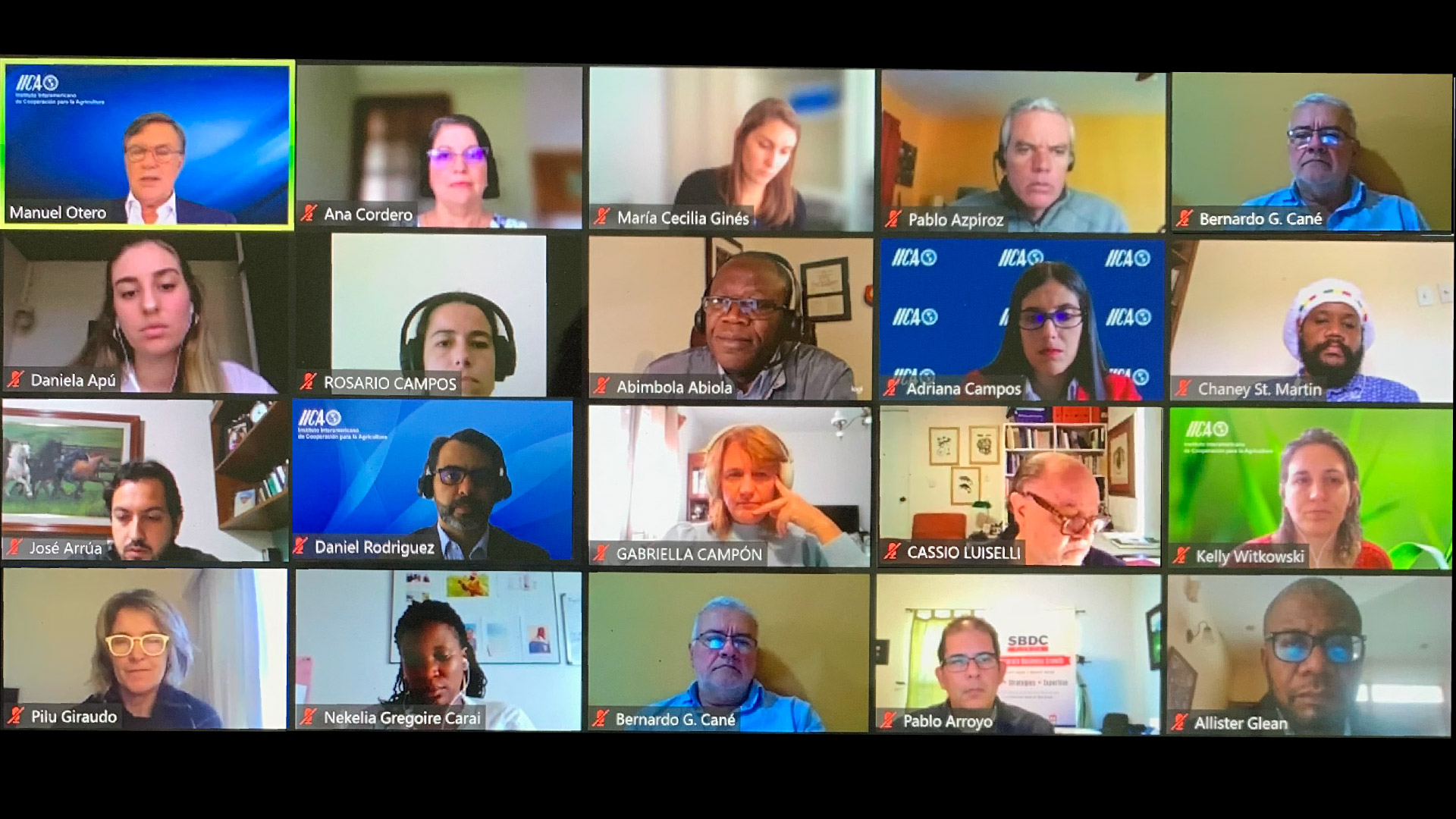Direct planting systems open opportunities to eliminate tillage and sequester carbon in soil through photosynthesis while reducing the use of fossil fuels and, in turn, greenhouse gas emissions.

San Jose, 24 May 2021 (IICA) – Soil, animal and human health—considered to be a single objective—is a key and decisive factor in the safety of agricultural products and in increasing the prominence in international markets of products from the Americas, according to hundreds of experts.
This was the conclusion reached during the virtual forum entitled “One Health and International Trade: Basic Elements for the Transformation of Food Systems”, organized by the Inter-American Institute for Cooperation on Agriculture (IICA).
The event was opened by Manuel Otero, Director General of IICA, who expressed that “The ‘One Health’ approach encompasses environmental, soil, animal, and human health as the basis for creating and maintaining sustainable agrifood systems”.
Following Otero, Bernardo Cané, former administrator of Argentina’s National Animal Health Service (SENASA), stated that “we need to explain to small, medium, and large producers the importance not of the chain, but of the agrifood system”.
He added, “We need to tell our consumers that the region’s production system is safe and healthy. And we need to demonstrate the health, traceability, and coexistence of flora and fauna with no negative environmental impact to the most critical opponents of food production of animal origin”.
María Beatriz “Pilu” Giraudo, representing the Argentine No-Till Farmers Association (AAPRESID), a civil organization of rural producers concerned with soil erosion, highlighted the experience of a sector whose technology “directly impacts the ability to produce safe, nutritious foods, particularly in terms of quality”.
“By using direct planting systems, we have an enormous opportunity to eliminate tillage and sequester carbon in soil through photosynthesis while reducing the use of fossil fuels and, in turn, greenhouse gas emissions”, she explained.
Bolstering agricultural trade to strengthen food security
Cassio Luiselli, an economist specializing in Agricultural Economics, Professor Emeritus at the Monterrey Institute of Technology and Higher Education (ITESM) – Mexico City Campus, and member of IICA’s Advisory Council for Food Security in the Americas, emphasized the importance of diversifying markets and deregulating agricultural trade.
“We need to significantly diversify the markets to which we export our products (from Latin America and the Caribbean) and this requires a huge effort to emphasize market deregulation”, he stated.
After attacking non-tariff barriers as an obstacle to trade, Luiselli underscored the need to “reassign resources, offsetting the regions with shortages with those with an abundance”.
In his opinion, it is “a powerful redistribution mechanism and, as such, a price creation mechanism, making international trade vital for understanding the role of food systems”.
In line with Luiselli’s proposal, the experts and public servants from the different countries in attendance at the forum showed their agreement with the need to combat global protectionist measures.
To that end, the agrifood producers in the Americas need to diversity their product offering and export destinations.
One conclusion of the different work groups at the forum maintains: “The world needs to understand that the Americas produce food and that this food is safe and innocuous. This needs to be emphasized at both the domestic and international levels”.
The experts also agreed on the need to move forward with implementing policies to protect the areas of the Caribbean that have been affected by climate shocks, seeking to strengthen the resilience of the food systems.
Moreover, they agreed on the relevance of a multidisciplinary focus on soil, human, and animal health and its connection to trade so that decision-makers can have answers from the field of agricultural production.
As in the past forums, which focused on cooperative production and the bioeconomy, this third meeting emphasized that science-based decisions and regulations are necessary for any positive transformation of the agrifood systems.
To that end, it was concluded that working on new forms of production and promoting trade would improve sustainable production and eliminate the double standard that often exists between local and export-oriented production.
More information:
Institutional Communication Division
comunicacion.institucional@iica.int











